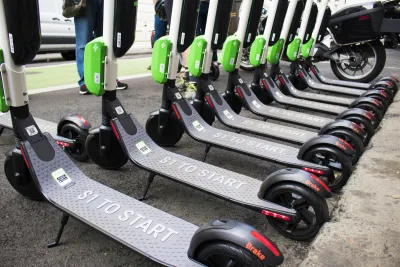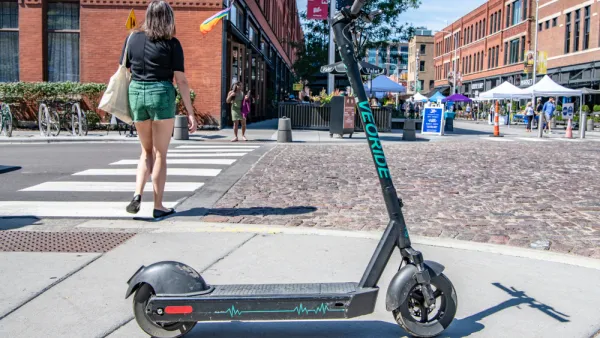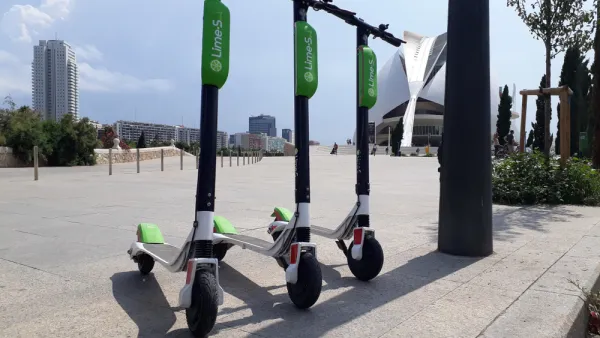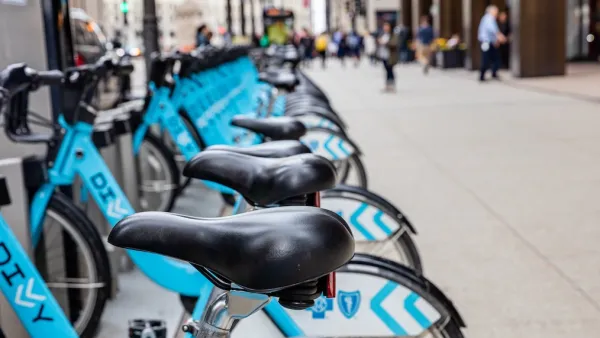Data from the city's e-scooter pilot program show that they might be filling in the first-mile/last-mile gap for riders at all income levels.

Lynda Lopez writes about a new report from DePaul University researchers about e-scooter usage in Chicago during a pilot project that is scheduled to run to mid-October. The study takes a closer look at one day of data collected every two minutes in July.
It finds that operators are generally deploying fewer than the 250 scooters allowed. "Some reasons for numbers being lower than the maximum levels were offered in the study, which included higher-than-expected maintenance issues or a desire from operators to focus on particularly geographic areas," notes Lopez.
Usage during peak hours suggests that riders are using the devices to travel to and from transit stations and stops. The analysis also shows that scooters are not just being used in affluent neighborhoods in Chicago. In some low-income parts of the city, the number of scooters remained above 40 percent.
"The study provided some promising data about the presence of e-scooters and their potential to be an asset for communities underserved by Divvy and transit," adds Lopez.
FULL STORY: DePaul Study: Scooters Are Being Used for Trips to Transit, and in Low-Income Areas

Analysis: Cybertruck Fatality Rate Far Exceeds That of Ford Pinto
The Tesla Cybertruck was recalled seven times last year.

National Parks Layoffs Will Cause Communities to Lose Billions
Thousands of essential park workers were laid off this week, just before the busy spring break season.

Retro-silient?: America’s First “Eco-burb,” The Woodlands Turns 50
A master-planned community north of Houston offers lessons on green infrastructure and resilient design, but falls short of its founder’s lofty affordability and walkability goals.

Test News Post 1
This is a summary

Analysis: Cybertruck Fatality Rate Far Exceeds That of Ford Pinto
The Tesla Cybertruck was recalled seven times last year.

Test News Headline 46
Test for the image on the front page.
Urban Design for Planners 1: Software Tools
This six-course series explores essential urban design concepts using open source software and equips planners with the tools they need to participate fully in the urban design process.
Planning for Universal Design
Learn the tools for implementing Universal Design in planning regulations.
EMC Planning Group, Inc.
Planetizen
Planetizen
Mpact (formerly Rail~Volution)
Great Falls Development Authority, Inc.
HUDs Office of Policy Development and Research
NYU Wagner Graduate School of Public Service




























